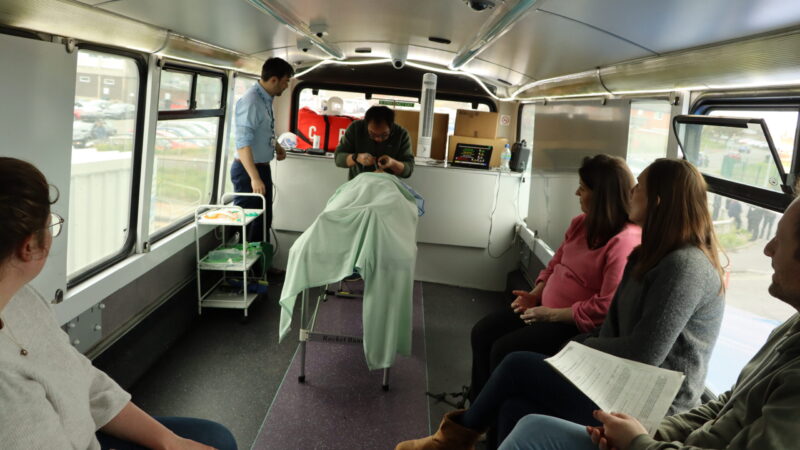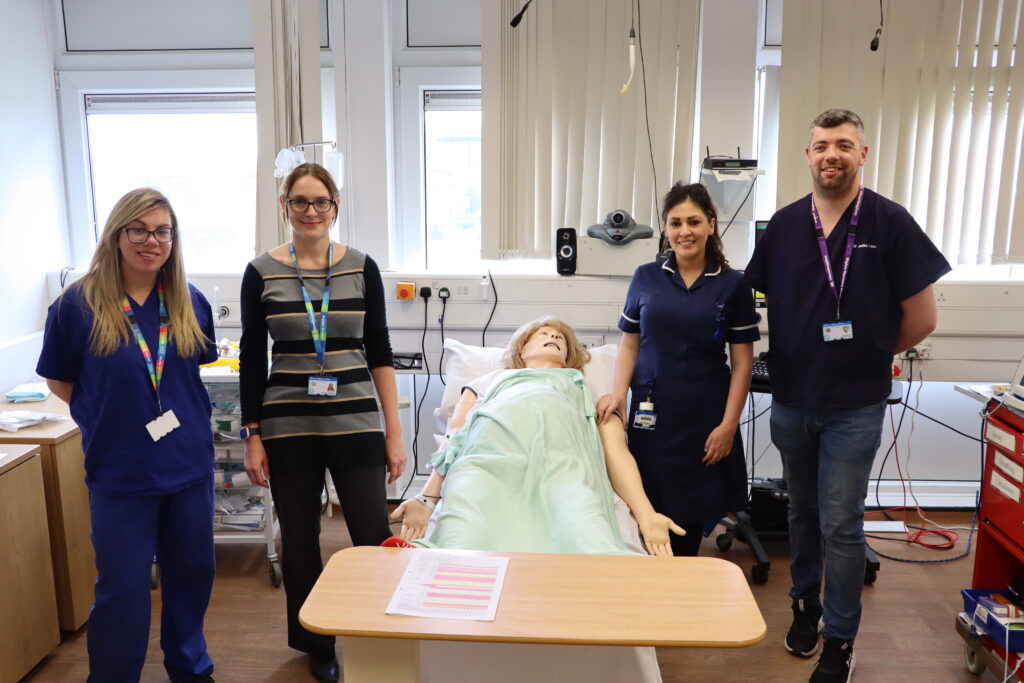
Emergency medicine doctors gained key insight into how to treat a series of very rare procedures after a new training day was set up.
North Tees and Hartlepool NHS Foundation Trust hosted a high acuity, low occurrence (HALO) training day, as part of North East acute schools medical programme, for over 40 delegates in April.
The Trust held an important day of speciality training for emergency medicine trainees from across the region, focusing on a series of rare procedures – the kind that may only happen once in a clinician’s career.
The day was funded through Health Education England (HEE).
Training for the procedures was set up as stations within the organisations education unit and the MELISSA bus – a specially designed NHS training and simulation bus. Doctors rotated around procedures including resuscitative hysterotomy, lateral canthotomy, front of neck access/surgical airway and pericardiocentesis.

Dr Kate Williamson, the Trust’s emergency department course director; “The day is all about training for procedures that we likely will not experience during our everyday working – potentially challenging, once in a career type situations where the procedures need to be performed quickly and under pressure.
“It’s crucial as medical professionals that we all get to train for and have experience of these kinds of events. The rarity of them, means it can be hard to learn and gain experience of these procedures, so delivering them in a simulated practice environment throughout training means should an event happen we can be confident in our skills, is so important.”
HALO training days feature practical and important procedures that clinicians don’t get to do every day. Resuscitative hysterotomy, which is performing an emergency caesarean section in a mother under a cardiac arrest condition, occurs in less than 1 in 30,000 pregnant women aiming to improve survival of both mother and child.
Jonathan Laws, course education fellow added: “Our hope is that we will be able to continue to host this training annually and that we will be able to extent the training to include our regions emergency consultants.”
“It’s been a very successful day for all involved and we hope to be able to continue to offer the training on site to reduce risk, increase confidence and improve healthcare outcomes for our patients across the region.”